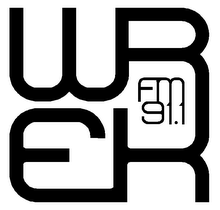"...there always will be a student-controlled WREK signal in an independent HD format and on the Internet."However, Internet streaming is not free, and in fact is becoming dramatically more expensive. This is because streaming requires the payment of performance royalties, which were established for digital transmission by the Digital Millineum Copyright Act in 1998. Stations pay these royalties to an organization called SoundExchange, which in turn disburses the proceeds to music performers and copyright holders. Note that these royalties are in addition to the traditional royalties that radio stations pay to music publishers such as ASCAP and BMI.
Performance royalty rates are set by the US Copyright Revew Board (CRB). Last Friday the CRB announced new (and significantly higher) royalty rates for internet streaming. According to this report, the new royalty rates will allow noncommerical webcasters to stream audio for a flat fee of $500 per year providing that listenership does not exceed 159,140 Aggregate Tuning Hours (ATH) per month (the amount of time all users listen to streaming audio in one month's time). Above this limit, noncommercial licensees will be expected to pay the full commercial cost, which for 2007 will be $.0011 per "performance" (i.e., per listener per song). This is a significant increase from previous rates. Even worse, the CRB increased the rates over the following years so that by 2010 the cost will be $.0019 per performance.
The limit of 159,140 ATH corresponds to an average of 216 listeners per hour. Given the choice of using Internet streaming or purchasing a $200+ HD radio receivers, most students are likely to choose Internet streaming to listen to WREK. The increased use of streaming by Tech's 17,000 students could surpass the limit, causing the higher per-performance rate to kick in and resulting in high royalty obligations.
For example, consider a scenario where the ATH limit is exceeded by 100 listeners per hour. Assuming WREK broadcasts 10 songs in an hour, the added royalties would be 100 X 10 X $.0011 = $1.10/hour. Over a year this adds up to a cost of $9,636. By the time 2010 rolls around, this amount would climb to $16,644 - a significant percentage of WREK's current operating budget. The more successful WREK is at attracting listeners, the higher the cost. This could make the cost of Internet streaming prohibitive.
Update: the text of the offical CRB decision can be found here.

2 comments:
In the past, WREK has considered the advice of IBS, an organization that represents the interests of college radio. The following web page will make your eyes bleed, but it'll be good to pay attention to what they have to say about the CRB/SoundScan decision.
IBS's streaming page
Also, it's worth noting that in music licensing matters, WREK is often covered by Georgia Tech's blanket performance license for campus. It's far more complex than just that, but it worth noting.
The key point is that the "leasing" proposals assume that using Intenet to stream student broadcasting will be cheap. This copyright decision is a warning that the days of cheap streaming are numbered.
Because moving student broadcasts to HD/streaming is almost certainly a one-way decision, it is important to consider the long-term consequences. What will happen to WREK if the cost of streaming becomes prohibitive?
Post a Comment